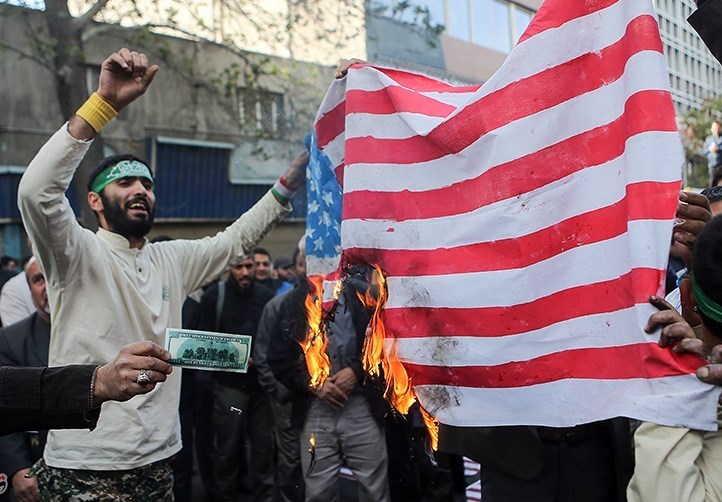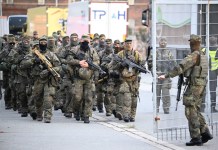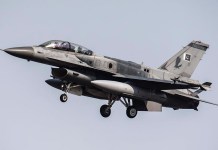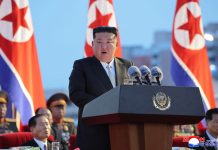While military observers have raised concerns over accidental confrontations between the US and China, Iran has created waves of fear in the international community as the global nuclear watchdog said that Tehran has more than 12 times the amount of enriched uranium than the stipulated amount in the 2015 nuclear deal.
What Lies Ahead For India & China As Donald Trump’s Loyalist Take Control Of The Pentagon?
The International Atomic Energy Agency (IAEA) has revealed in its report distributed to member states that Iran’s stockpile of low-enriched uranium had reached 2,442.9kg (5,385.6lb) this month.
Although the report doesn’t mention the site where it had found nuclear material. An anonymous AFP news agency source has said that there was no indication it had been used for processing uranium, but it could have been used to store the material.
Tehran has said that the presence of nuclear is “exclusively for peaceful purposes”, however, the report has rejected the explanation as “not credible”.
“The agency informed Iran that it continues to consider Iran’s response to be not technically credible,” the report said. “A full and prompt explanation from Iran regarding the presence of uranium particles of anthropogenic origin … at a location in Iran not declared to the Agency, is needed,” it added.
The Joint Comprehensive Plan of Action (JCPOA), also known as the Iran nuclear deal, was signed between Iran and P5+1 namely China, France, Russia, United Kingdom, United States—plus Germany, imposing an embargo on Iran’s nuclear activities and allow international inspections in its facilities, in return for lifting economic sanctions.

Under the deal, Iran is allowed to enrich uranium to a purity of up to 3.67% while it has currently reached 4.5%. Additionally, the deal allows producing upto 300kg of enriched uranium in a particular compound form (UF6), which is the equivalent of 202.8kg of uranium.
Uranium with a concentration of 3-5% of U-235 isotopes can be used to produce fuel for power plants. To create nuclear weapons, 90% enrichment or more is required.
In 2018, the US pulled out of the nuclear deal and reimposed the sanctions. US President also instructed an airstrike in January 2020 that killed Iran’s top general Qassem Soleimani. In retaliation, Tehran ended its commitment to limit its uranium enrichment.
Following the IAEA report, Saudi Arabia’s King Salman bin Abdulaziz Al Saud urged the world to take “a decisive stance” against Iran’s “ambitions” to develop nuclear weapons.
“The kingdom affirms the seriousness of the Iranian regime’s regional project […] and calls on the international community to take a firm stance towards Iran,” he said in a speech.
Currently, the US has moved to impose new sanctions on Iran. Elliott Abrams, the US State Department’s Special Representative for Iran and Venezuela, declined to specify which Iranian entities would be targeted or when penalties were likely in an interview with Bloomberg TV.
He rejected the possibility of military action against Iran and said that Trump’s “maximum pressure” economic policy has created “an enormous amount of leverage” for the next President. “There will be a negotiation no matter who’s president of the United States in 2021,” Abrams said.
President-Elect Joe Biden had earlier said that he would make an unshakeable commitment to prevent Iran from acquiring a nuclear weapon in an opinion piece he wrote for the CNN in September. He added that under his presidency, the US will rejoin the JCPOA “as a starting point for follow-on negotiations”.
Analysts believe that Biden may enter the nuclear deal again but it may be possible only after renegotiating the terms. Meanwhile, Iranian Foreign Minister Mohammad Javad Zarif had clarified that “under no circumstances” would Tehran renegotiate the terms of the deal. “If we wanted to do that [renegotiate], we would have done it with President Trump four years ago,” Zarif told CBS News.
It is yet to see if Biden’s plans will be successful or not. He may be able to avoid a confrontation with Tehran in the short run but the increasing tensions in the Middle East may lead to the US to interfere in order to restrain Iran’s ambitions.




